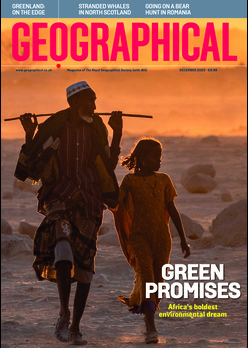
Innovative waste system could provide a solution to high UK council tax bills and help to increase recycling & reduce waste
By
What if a single solution could combat high council taxes and support a cleaner, better environment? Now, experts from Business Waste believe they have the answer: a ‘pay as you throw’ (PAYT) system that could alleviate both problems in the UK.
Essentially, the system would work where households pay for their waste based on the quantity they produced, a sum typically measured by the weight or volume of waste. Such a system provides a financial incentive for people to produce less waste, or to recycle more.
Enjoying this article? Check out our related reads:
Currently, household domestic waste collection and disposal is funded through council tax, which since 2000 has increased in the UK by 214 per cent.
In a PAYT scheme, residents would pay for the quantity and types of rubbish they produce, as opposed to traditional bin collection, which is included in council tax
Around seven per cent of council tax goes toward supporting waste, recycling and the environment. With the average band D council tax bill now sitting at £2,171 per year, that’s around £151.97 spent on waste.
Although there is no guarantee waste collection would be cheaper than through council tax, the ‘polluter pays’ principle allows homeowners to reduce overall waste, recycle as much as possible and utlilise other ways of waste disposal such as composting.
Could PAYT be introduced to the UK?
In 2012, a PAYT system was trialled in South Norfolk in the UK. The test covered 52,000 households and put £25,000 of scanning technologies on 12 bin lorries. However, several issues led to the scheme being scrapped.
For example, much of the technology failed, causing issues with weighing waste, and the scheme was met with significant public backlash as local residents and the media raised concerns over privacy.

This doesn’t mean that a PAYT scheme is destined to fail if trialled again in the UK. Instead, certain conditions could be met, such as educating residents on the benefits of the system, as well as ensuring any councils enforcing the system should ensure they have the infrastructure and correct technology.
Do PAYT systems work around the world?
Other countries have successfully implemented PAYT systems into their societies – for example, South Korea. The nation relies on the use of smart bins for food waste, and residents must use these bins, which are then linked to ID tags. The bin weighs the waste added during each use and displays both weight and cost to residents.
South Korea also uses the system for general waste. Residents pay for government-issued prepaid bags to dispose of rubbish. Recycling carries no charge, encouraging residents to divert waste to this stream. The system appears to be working well, with 86 per cent of all waste recycled.
Elsewhere on the planet, the Netherlands are also making huge strides with its own PAYT system. Around half of the municipalities have implemented the technology, with residents typically buying official waste bags or using smart bins.
Such a system has led to a reduction of 20 per cent in the cost of household waste collection and generated a residual waste reduction of 25 per cent.




